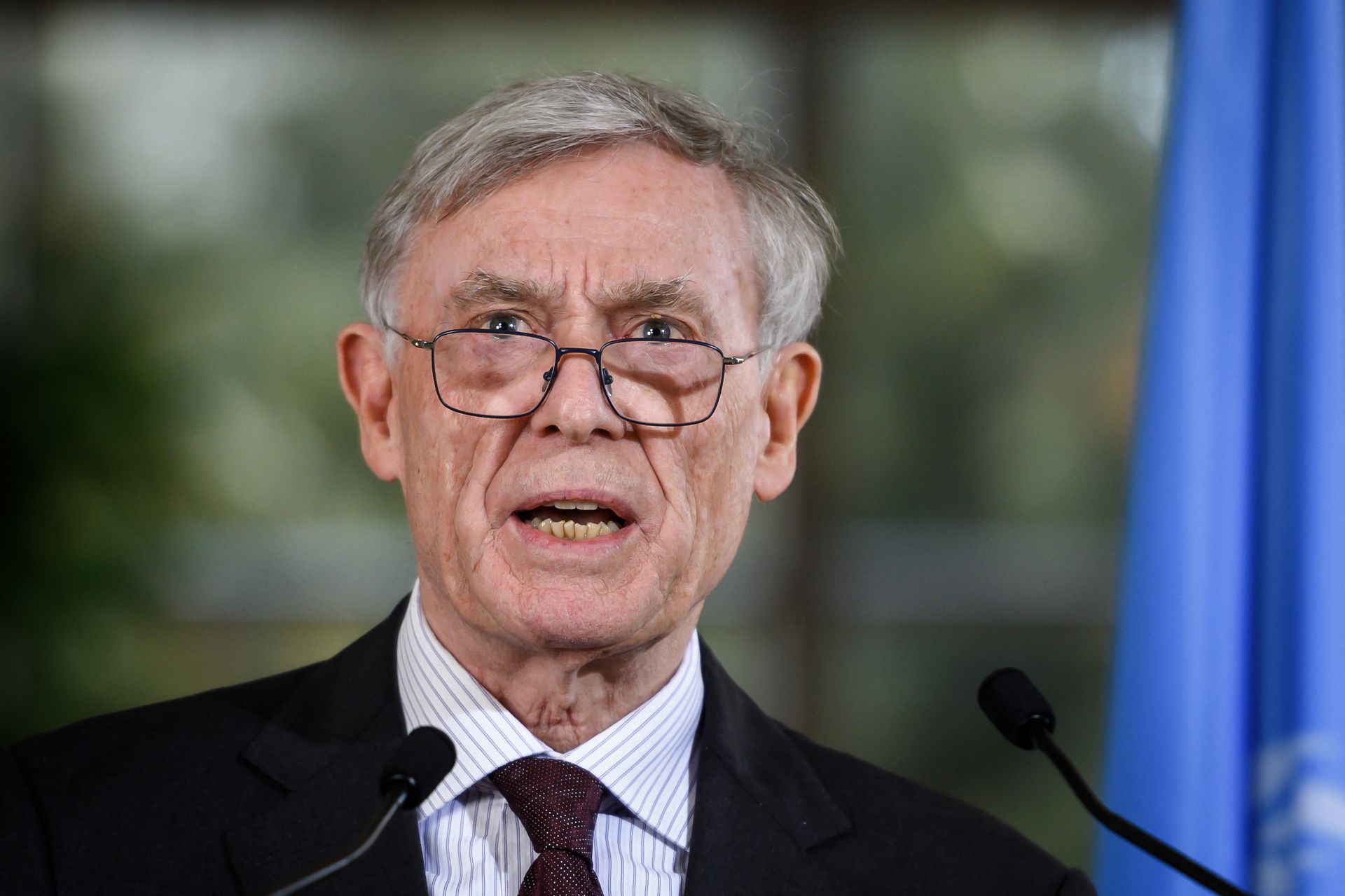- Home
- Middle East
- Former German President and Former IMF Director Horst Köhler Dies

Former German President and IMF Managing Director Horst Kohler addresses the media following a two-day round of talks on ending the Western Sahara conflict at the United Nations offices in Geneva on March 22, 2019. ©Fabrice Coffrini / AFP
Former German President and former Managing Director of the International Monetary Fund (IMF), Horst Köhler, passed away on Saturday at the age of 81.
The Christian Democratic economist "passed away early this morning in Berlin... after a short and severe illness, surrounded by his family," according to a statement from the German presidency.
"With Horst Köhler, we lose a highly respected and extremely popular individual who achieved great things – for our country and worldwide," wrote Federal President Frank-Walter Steinmeier in a letter of condolence to Köhler's widow.
German Social Democratic Chancellor Olaf Scholz also paid tribute to Köhler, calling him "a committed politician who worked his whole life for a fairer world," on X.
Horst Köhler served as Germany's president from 2004 to 2010. He became the first German president to not have a political career but instead hailed from the world of economics. He had been the IMF Managing Director from 2000 to 2004 and president of the European Bank for Reconstruction and Development (EBRD) from 1998 to 2000. In 2019, the UN announced his resignation "for health reasons" from his role as UN envoy for Western Sahara, a position he held since 2017.
In this role, Köhler had worked to restart the search for a solution to the former Spanish colony, mostly controlled by Morocco but claimed by the pro-independence Polisario Front. After six years without dialogue, he managed to bring the parties back to the table, notably by organizing two rounds of talks in Switzerland – one in December and another in March – with Morocco, Polisario, Algeria, and Mauritania.
Focus on Africa
To run for president, the reserved Köhler resigned from his position at the IMF, where his major task had been managing the Argentine financial crisis.
He was re-elected for a second term as Federal President in 2009 but surprised many by resigning the following year after remarks that seemed to justify Germany's military intervention in Afghanistan as a defense of economic interests. His comments caused a scandal in a country with a largely pacifist sentiment.
During his time in office, Köhler gained political stature by, for example, criticizing the high salaries of top executives and denouncing the "monster" that, in his view, were the financial markets. On the international stage, he emphasized partnerships with Africa.
This tall, athletic man was known for his modesty and personal tone in public appearances.
The former Secretary of State for Finance under conservative Chancellor Helmut Kohl also played a key role in Germany’s monetary unification on July 1, 1990, when East Germany adopted the West German mark.
He also played an important part in the financial aspects of the Soviet troop withdrawal from East Germany and established himself as Helmut Kohl's "sherpa" in international economic summits.
Köhler also helped prepare for the introduction of the euro in a country that viewed the disappearance of the revered Deutsche Mark with great skepticism. He was also involved in the creation of the European Stability and Growth Pact.
Born in 1943 to German parents from Bessarabia, Romania, who had to flee to occupied Poland after Romania ceded its eastern territories to the Soviet Union, Köhler's family had settled in East Germany after escaping the Red Army at the end of the war. They later fled again to the West in 1953.
With AFP
Comments